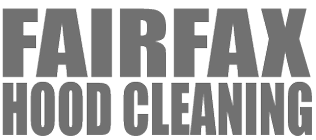Understanding the Basics of Hood Cleaning in Commercial Kitchens
Commercial kitchen hygiene isn’t just about keeping counters clean and food safe; it’s also about maintaining crucial equipment, like the exhaust hood. Hood cleaning is a critical aspect of any commercial kitchen’s maintenance routine, ensuring safety and efficiency in food preparation areas. But what exactly does this involve, and why is it so important?
Why Is Hood Cleaning Essential?
The exhaust hood—also known as the range hood, exhaust fan, or extractor fan—is designed to remove airborne grease, combustion products, fumes, smoke, heat, and steam from the air via filtration and evacuation of the air. Over time, these contaminants build up, and if not properly cleaned, they can create several problems:
- Fire Hazards: Grease accumulations are highly flammable. The longer you wait between cleanings, the greater the risk of a kitchen fire.
- Health Risks: Dirty hoods contribute to poor air quality, which can lead to respiratory issues and other health problems for your staff.
- Equipment Efficiency: Clean hoods operate more efficiently, helping your kitchen stay cool and reducing overall energy costs.
- Compliance: Adhering to local health and fire safety codes often requires regular hood cleaning.
Challenges Specific to Commercial Kitchens
Unlike home kitchens, commercial kitchens in restaurants, cafeterias, and other food service settings usually have larger, more powerful exhaust systems. This complexity brings about unique challenges:
Volume of Cooking
Commercial kitchens operate for extended hours and serve hundreds of meals daily. The high frequency of cooking means that grease and other contaminants build up faster. This necessitates more frequent and thorough cleanings to prevent hazards and maintain efficiency.
Tough Stains and Build-Up
The intensity of industrial-scale cooking leads to tougher stains and thicker layers of grease. Removing these requires specialized cleaning solutions and expertise that typical household cleaning methods cannot provide.
Compliance with Regulations
Health and safety regulations for commercial kitchens are stringent. Failing to meet these can result in hefty fines or even kitchen closures. Therefore, restaurant owners must ensure that their exhaust hood systems are cleaned and maintained according to local and national standards.
The Process of Hood Cleaning
The process of hood cleaning in commercial kitchens typically involves several steps to ensure thoroughness and safety:
Inspection
The first step is a comprehensive inspection to identify areas with significant grease build-up and to assess the condition of the hood and ductwork. This step sets the stage for a targeted and effective cleaning effort.
Pre-Cleaning Setup
To protect kitchen appliances, food preparation areas, and flooring, specialized drop cloths, and tarps are set up. This phase ensures that any mess created during cleaning does not affect the rest of the kitchen.
Scraping and Degreasing
Technicians then manually scrape off large grease deposits. This is followed by applying powerful, eco-friendly degreasers that break down stubborn grease and grime. The degreasing agents are left to sit for a while to ensure maximum effect.
Hot Water Pressure Washing
High-pressure hot water washers are used to rinse off the degreaser and remaining grease residues. This method is highly effective in removing all traces of contaminants and ensuring a thorough clean.
Final Inspection and Polishing
After the initial cleaning, a final inspection is performed to ensure all grease has been removed. The metal surfaces of the exhaust hood are then polished to restore their sheen and to make future cleaning easier.
How Often Should Commercial Kitchens Schedule Hood Cleaning?
The frequency of exhaust hood cleaning largely depends on the type of cooking done and the volume of food prepared. Here are some general guidelines:
- High-Volume Operations: Fast-food restaurants and 24-hour diners should perform hood cleaning every 30 days.
- Moderate-Volume Operations: Casual dining restaurants and hotel kitchens should clean their hoods every 90 days.
- Low-Volume Operations: Cafeterias, convenience stores, and snack bars should aim for a hood cleaning every 180 days.
- Occasional Use Kitchens: Churches, day camps, seasonal businesses, and senior centers should perform hood cleaning once a year.
Choosing the Right Hood Cleaning Service
Given the importance and complexity of hood cleaning, it’s crucial to hire experienced and certified professionals for the job. A reputable Fairfax Hood Cleaning service can ensure your kitchen stays compliant with regulations and operates safely and efficiently.
Look for Certified Technicians
Ensure the company employs technicians certified by organizations like the International Kitchen Exhaust Cleaning Association (IKECA). Certification guarantees that the technicians are trained and knowledgeable in all aspects of commercial kitchen hood cleaning.
Check Reviews and References
Customer reviews and references are invaluable in making an informed decision. They offer insights into the company’s reliability, quality of work, and customer service.
Transparent Pricing
Opt for a company that provides clear and upfront pricing. Beware of hidden charges and overly discounted services that might compromise quality.
Service Guarantees
A reputable hood cleaning service should stand behind its work with a satisfaction guarantee. This ensures that any issues are promptly addressed without additional costs.
Conclusion
Regular hood cleaning is essential for maintaining the safety, efficiency, and compliance of commercial kitchens. Understanding the unique challenges and best practices of this task can help restaurant owners and managers keep their kitchens running smoothly and safely. If you’re in Fairfax VA and looking for professional hood cleaning services, make sure to choose a company with a proven track record in the industry. Remember, a clean kitchen is a safe and productive kitchen.


